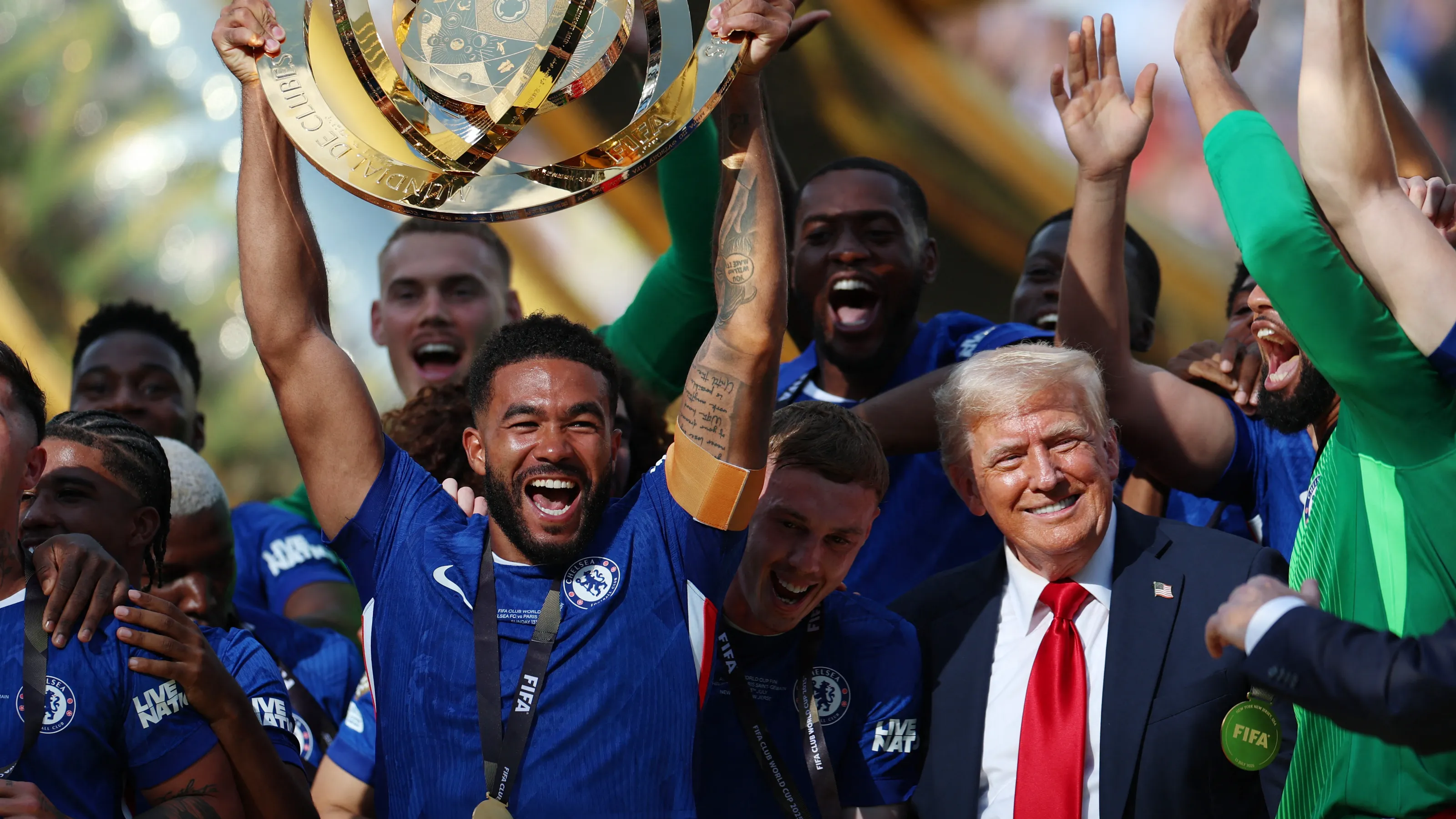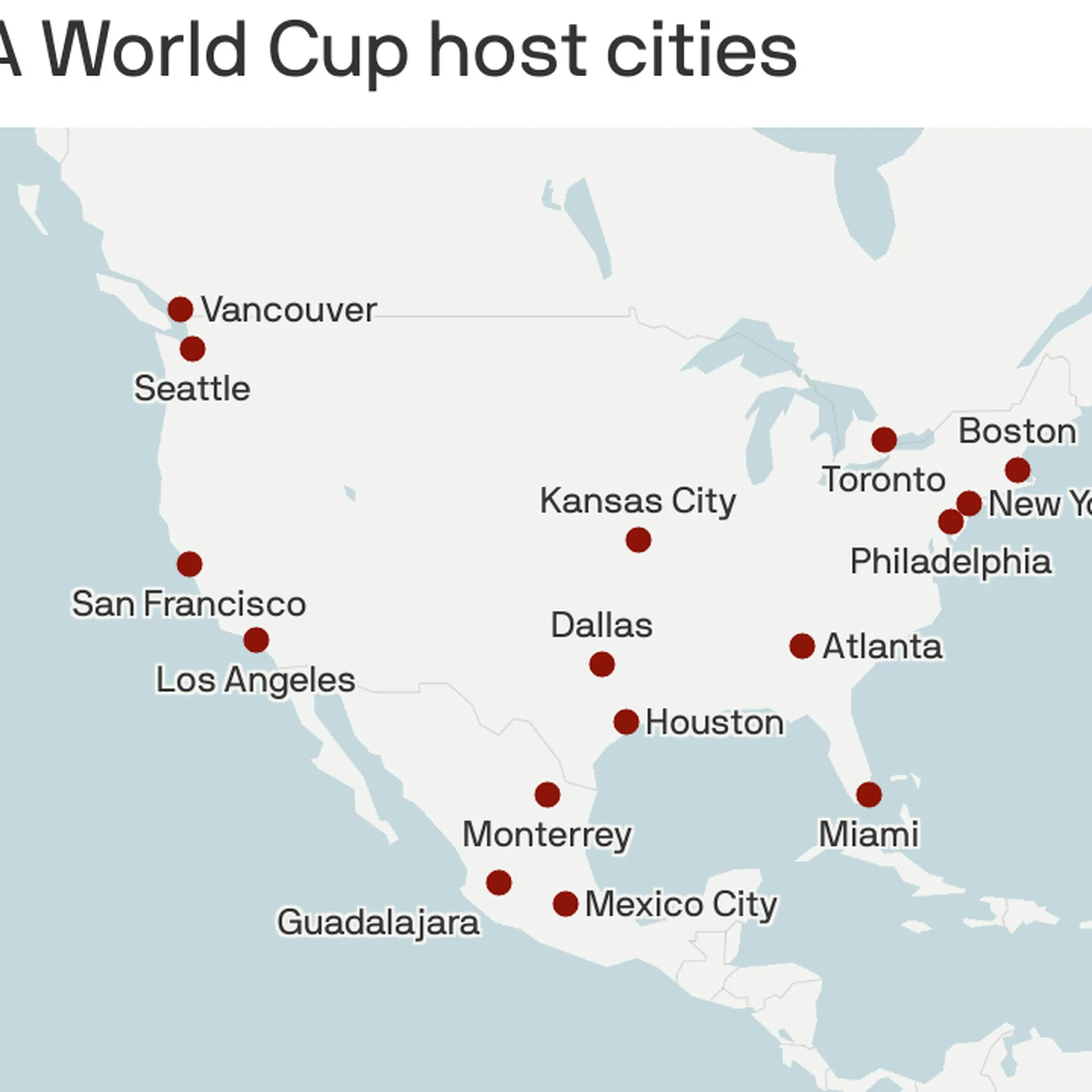Trump"s Involvement Raises Eyebrows
As President Donald Trump stood and saluted at the FIFA Club World Cup Final in East Rutherford, New Jersey, the juxtaposition of his presence and the event"s spirit of international unity could not be more stark. Chelsea FC"s decisive victory over Paris Saint-Germain should have signified a celebration of the global game, but instead, it highlighted the looming shadows of Trump"s divisive immigration policies and "America First" agenda. This was not just a soccer match; it was a prelude to a larger conundrum that the 2026 World Cup will face under Trump"s administration.
Concerns About Immigration Policies
With next year’s World Cup set to be hosted across three nations— the United States, Canada, and Mexico— the implications of Trump"s immigration restrictions are profound and troubling. The president"s executive orders have already barred nationals from 12 countries, including those whose teams may qualify, such as Iran, Ghana, and Egypt. Human Rights Watch has urged FIFA to pressure Trump to amend these policies, asserting that "the World Cup is supposed to be an inclusive celebration of humanity," a notion that starkly contrasts with the current atmosphere of exclusion.
Mixed Reactions from the Crowd
The crowd’s mixed reactions during the match— some cheering for Trump while others booed him— underlined the fractured nature of American society under his leadership. This duality poses a significant challenge for the World Cup, where international fans and players might feel unwelcome in a country that has been increasingly hostile towards immigrants. As reported by AP News, the logistical hurdles of hosting the event are already compounded by the uncertainty surrounding immigration enforcement at stadiums, raising fears of potential detentions and arrests.

Trump joins Chelsea for Club World Cup celebration, players react
Global Image at Stake
Trump"s administration seeks to portray the World Cup as an opportunity to showcase America as a premier global destination for events. However, as research indicates, the intersection of sports and politics during Trump"s presidency has not only exposed societal rifts but has also hindered America"s brand on the global stage. The notion of a "safe and secure" environment for international visitors is undermined by the very policies designed to protect national security, which often manifest as xenophobia and exclusionary practices. Trump"s insistence that "tension"s a good thing" reflects a troubling mindset that prioritizes spectacle over inclusivity.
Immigration Enforcement at Sports Events
The potential for immigration enforcement at sporting events has raised alarms among advocacy groups, as the mere presence of Customs and Border Protection at matches could deter international fans from attending. As reported by legal scholars, the fear of being targeted simply for looking a certain way creates an unwelcoming environment, which could severely dampen the vibrant atmosphere that the World Cup is known for. Minky Worden of Human Rights Watch articulated this concern, stating, "Who wants to have to bring their passport to a Club World Cup game that’s supposed to be fun with friends and family?"
Administrative Challenges Loom
The logistical challenges are not limited to immigration. Trump’s administration has faced complaints about field conditions, heat during midday matches, and attendance issues at events leading up to the World Cup. With stadiums only partially filled, the concern about whether the U.S. can successfully host the world’s largest sporting event looms large. The appointment of Andrew Giuliani as the executive director of the World Cup task force raises additional questions about the administration"s commitment to ensuring an inclusive and welcoming atmosphere, especially given his familial ties to Rudy Giuliani, a figure deeply entwined in Trump’s controversial legacy.
FIFA"s Complicity
FIFA’s complicity in this complicated situation cannot be overlooked. By allowing Trump’s administration to dictate terms that could bar fans from attending the World Cup, FIFA risks alienating the very essence of what the tournament represents. The organization"s relationship with Trump, characterized by personal meetings and strategic alignments, underscores a troubling willingness to prioritize profit and visibility over the foundational values of sportsmanship and international camaraderie. As scholarly analyses suggest, the intersection of sports with political agendas has often led to a dilution of the inclusive spirit that events like the World Cup were designed to foster.

World Cup 2026 host cities announced: Full list







![[Video] Gunfire between Iraqi security forces and Sadr militias in Baghdad](/_next/image?url=%2Fapi%2Fimage%2Fthumbnails%2Fthumbnail-1768343508874-4redb-thumbnail.jpg&w=3840&q=75)
